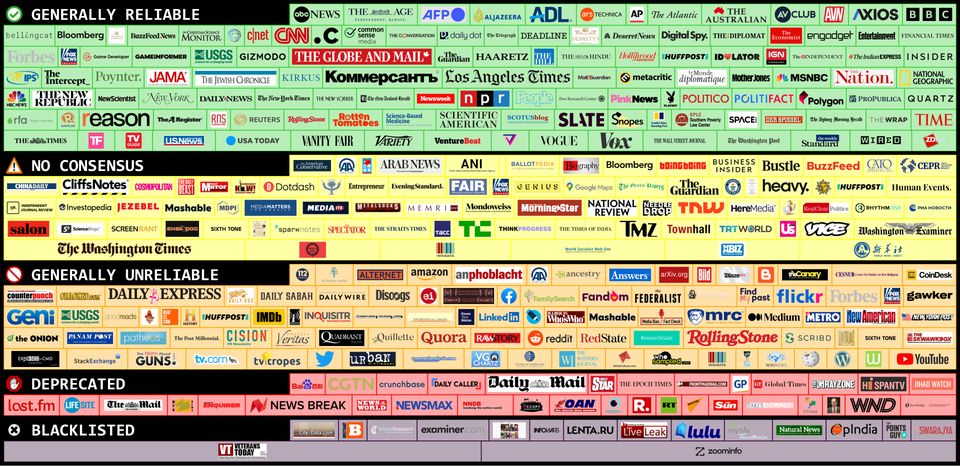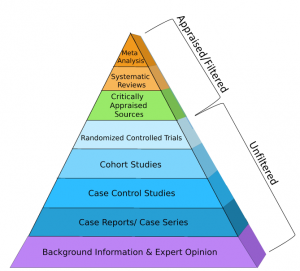Referencing: Difference between revisions
From BurnZero
No edit summary |
No edit summary |
||
| Line 1: | Line 1: | ||
'''You can't trust anything you read on the web as fact unless you fully understand the objectives of the source | [[File:News hierarchy.jpg|alt=News hierarchy|center|960x960px|News hierarchy]] | ||
[[File:Weighting hierarchy.png|alt=Weighting hierarchy|thumb|Weighting hierarchy]]'''You can't trust anything you read on the web as fact unless you fully understand the objectives of the source it comes from.''' | |||
News is not a term in science. News in our society represents a source of authoratitative informations which does not disclose its own biases. | |||
In [[wikipedia:The_Library_of_Babel|Borges' The Library of Babel]], there is a thought experiment where all possible 410-page books of a certain format and character set are available to anyone. Essentially, within our own confines this represents all knowledge humans '''could''' possibly produce. This is analogous to the internet. | In [[wikipedia:The_Library_of_Babel|Borges' The Library of Babel]], there is a thought experiment where all possible 410-page books of a certain format and character set are available to anyone. Essentially, within our own confines this represents all knowledge humans '''could''' possibly produce. This is analogous to the internet. | ||
Revision as of 04:53, 16 April 2022
You can't trust anything you read on the web as fact unless you fully understand the objectives of the source it comes from.
News is not a term in science. News in our society represents a source of authoratitative informations which does not disclose its own biases.
In Borges' The Library of Babel, there is a thought experiment where all possible 410-page books of a certain format and character set are available to anyone. Essentially, within our own confines this represents all knowledge humans could possibly produce. This is analogous to the internet.

